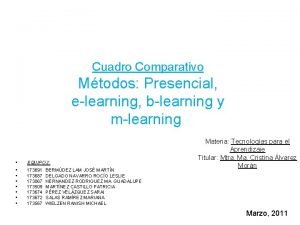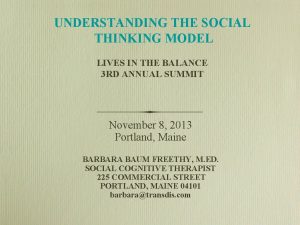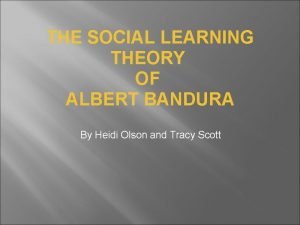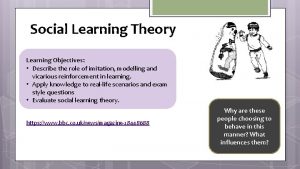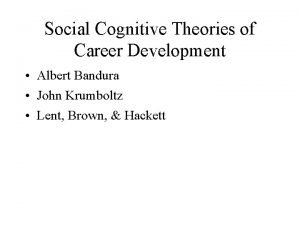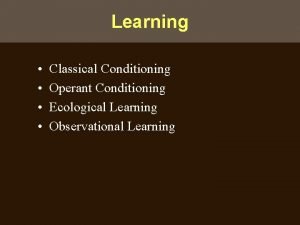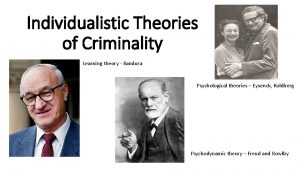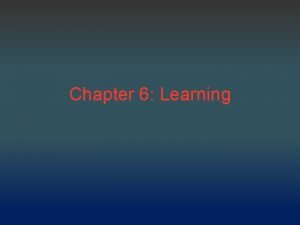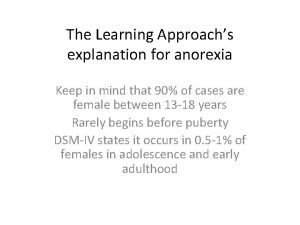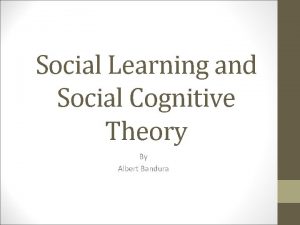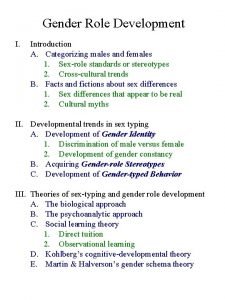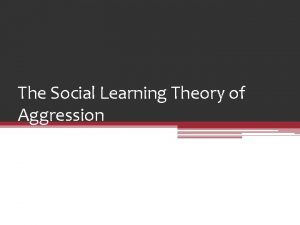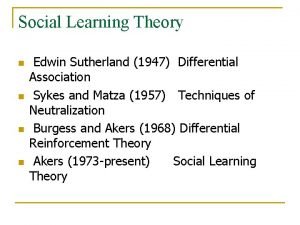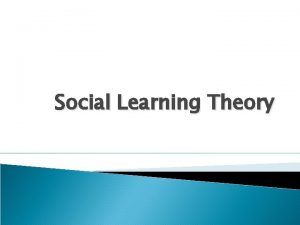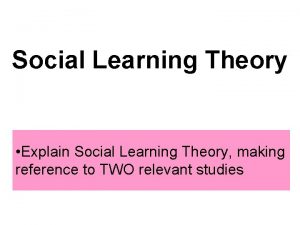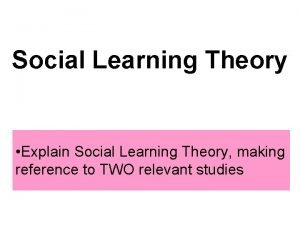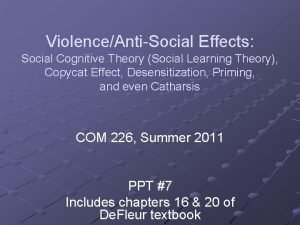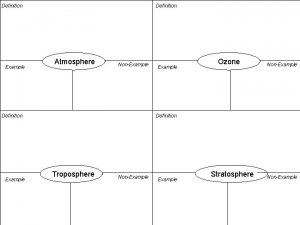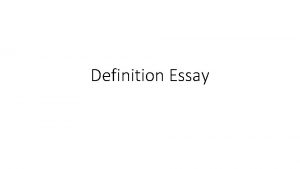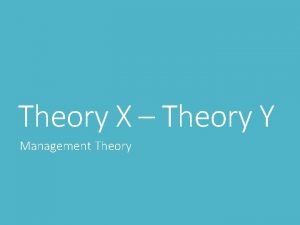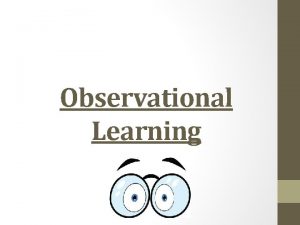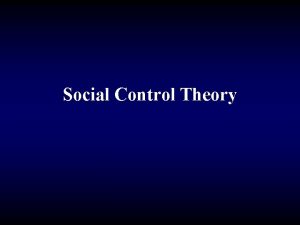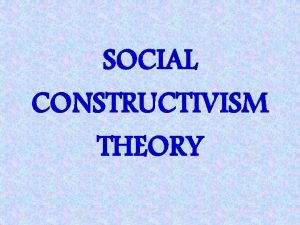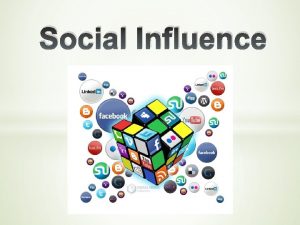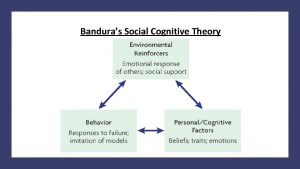Social Learning Theory Definition of Social Learning Theory















- Slides: 15

Social Learning Theory

Definition of Social Learning Theory - What is Social Learning Theory? The learning occurs within a social context. Social Learning Theory considers how people learn from one another by observing, imitating, and modelling

General Principles of Social Learning Theory § § People can learn by observing the behaviours of others and the outcomes of those behaviours. Learning can occur without a change in behaviour. The consequences of behaviour play a role in learning. Cognition plays a role in learning.

Albert Bandura Carried out numerous experiments to observe the way children learn from observing certain behaviours

Bandura and the Bobo dolls

Basic Terminology in Social Learning Theory Social Learning Theorists use the term modelling to describe what a model does (demonstrate a behaviour) and what the observer does (copy that behaviour). Types of Models Live model - an actual person demonstrating a particular behaviour. Symbolic model - a person or character portrayed in a film, TV, book, or other medium Verbal instructions - descriptions of how to behave

Modelling Can you think of an example of how this has taken place within your classes?

Cooperative Learning VS Collaborative Learning Cooperative Learning Students work in a small group to achieve a common goal They work inter-dependently and all assume a broadly similar role Teacher’s role is to: • Define group’s tasks/goals • Assign groups • Facilitate and monitor group processes • Evaluate the extent to which learning has taken place

Collaborative Learning Students work in a small group to achieve a specific goal In this case each assumes a different role within the group

Peer Tutoring Teachers cannot always devote as much time as they would like to one-to-one instruction with their students. In such situations, peer tutoring, whereby students who have mastered a topic teach those who have not, can provide an effective alternative for teaching fundamental knowledge and skills. (Brown & Palincsar, 1987)

Benefits: Cooperation and other social skills improve Classroom behaviour problems may diminish Friendships develop between students of different ethnic groups and between students with and without disabilities

Situated learning theory Stresses the importance of context in learning

Lave & Wenger Learning should be set in a meaningful context Activities should be relevant and authentic

Lave & Wenger Communities of practice We learn a lot from the shared experiences of daily life, eg in the workplace, via hobbies. These shared learning experiences are described as ‘communities of practice’

What sort of communities of practice do you belong to?
 Cuadro comparativo e-learning y b-learning
Cuadro comparativo e-learning y b-learning Double interview michelle garcia winner
Double interview michelle garcia winner Examples of social learning theory
Examples of social learning theory Is social learning theory deterministic
Is social learning theory deterministic Social learning theory bandura 1977
Social learning theory bandura 1977 John krumboltz social learning theory
John krumboltz social learning theory Partial reinforcement
Partial reinforcement Real life example of classical conditioning
Real life example of classical conditioning Tripartite personality
Tripartite personality Classical conditioning vs operant conditioning
Classical conditioning vs operant conditioning Social learning theory anorexia
Social learning theory anorexia Bandura's social learning theory
Bandura's social learning theory Direct tuition social learning theory
Direct tuition social learning theory Social learning theory of aggression
Social learning theory of aggression Edwin sutherland theory
Edwin sutherland theory Social context definition
Social context definition
